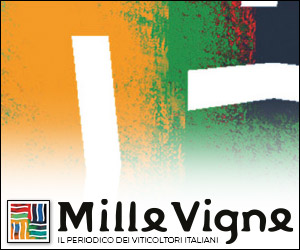Lorenzo Biscontin
A few days ago, Angelo Gaja released a statement on the differences between wine, spirits and aperitifs.
Gaja’s speech, reported by many newspapers and opinion leaders in wine, concluded with “No other drink produced in the West has the cultural depth of wine: which has its roots in humanity, history, culture, landscape, tradition, religion. Already Noah in Genesis, after the flood ended and he got out of the ark, was the first to plant the vine so that wine could be enjoyed as food and to celebrate in company”.
These are interesting concepts, also because they are essentially the same ones used by other initiatives in defense of wine consumption that have emerged in the last year all over the world. For example “Vitaevino” promoted by the various institutions that represent the European wine sector and “Come Over October”, born from the commitment of American communication professionals who received the support of a good part of the US wine sector.
The values of conviviality, culture, history and tradition are those on which wine has built its worldwide consumption spread over the last 30 years and are those shared by passionate consumers. These people range from those who carefully taste the wine they drink to get the most pleasure from those who define themselves based on the wines they drink, how and with whom they drink them.
This is a large niche, represented largely, but not only, by people over 60 and are the pillar on which wine consumption currently stands in the majority of markets.
Three years of contraction in wine consumption at a global level demonstrate, however, that consumers with this attitude towards wine, or interested in the values described above, are no longer sufficient to support the sector in the medium-long term.
It is therefore worth examining the values so often used to valorize wine compared to other alcoholic beverages from a broader point of view, considering that in the last decade numerous studies have shown that the main reason why people drink wine (from 60% to 70% depending on the source) is “to relax” (which explains why recreational cannabis has also appeared among the alternatives to wine, in countries where it is permitted).
Conviviality: those who deal with wine see wine as the convivial drink par excellence. In reality, depending on the places, habits and situations, people get together sharing coffee, tea, beer, cocktails, spritz (which is nothing more than a ready to drink), etc … up to joints (where it is legal, let it be clear).
The true uniqueness of wine is that it is the drink that more often than others is the subject of conviviality, that is, wine enthusiasts often talk about the wines they have drunk, that they are drinking, that they would like to drink.
An excellent topic to break the ice between strangers who share their passion, terrible for those who just want to relax. It is the transition we have experienced in the last twenty years from “You who have taken the sommelier course, explain this wine to us” to “You who have taken the sommelier course, don’t bother us with wine and let us enjoy our time in peace”.
Culture: Pier Paolo Pasolini in his Scritti Corsari of 1975 highlighted how consumer society morally rewards doing over thinking, in an anti-cultural logic also adopted by the mass media.
Drinking wine in countries without a historical tradition of production and consumption is also a sign of cultural distinction, which, today more than ever, risks becoming more elitist than elitist.
History and tradition: “Tradition is the transmission of fire and not the cult of ashes” is a famous phrase by Thomas More often attributed to Gustav Mahler (I prefer this version to the more famous one that uses “preserve the fire” and it also seems more faithful to the original German “Tradition ist die Weitergabe des Feuers und nicht die Anbetung der Asche”).
A recommendation that however is not happening in the wine sector if today 37% of French people and 50% of Italians do not drink wine at all.
Historically producing countries have “solved” the decline in domestic consumption by opening new foreign markets where consumers have adhered to the system of traditional values that were proposed to them. But how much influence in the “new” markets can have a concept that is proving to be less and less relevant in the historical ones?
Precisely in view of the need to further expand consumption on a global level, we cannot forget that in the last thirty years the weight of “Western” countries has greatly decreased on an economic, cultural and population level. The latest data on the distribution of world religions are rather dated because they date back to 2015: then Christians were 31.5%, Muslims 23.2%, atheists + agnostics 16.3%, Hindus 15%, Buddhists 7.1%, followers of traditional religions 5.9%, others (including Jews) 1% and an undetermined 25%.
In addition, in many European countries, Canada and Japan, religion is considered important by less than 50% of the population.
In this scenario, and I say this as a practicing Catholic, what is the relevance of the reference to Judeo-Christian traditions? How much of an added value and how much of a disvalue for those who can see wine as a tool to spread cultural hegemony?
Without considering that the Bible is a big book. For example, Isaiah 5,11 and 28, 7 and Saint Paul in the letter to the Ephesians 5, 18 rail against wine and its excesses.
Abandoning the values that are today inherent to wine would be neither right nor useful, but without ADDING new ones it will be very difficult to transmit, even in another form, the tradition of wine consumption.
Nothing new, we also drink today a wine that is very different from that of a hundred years ago.



